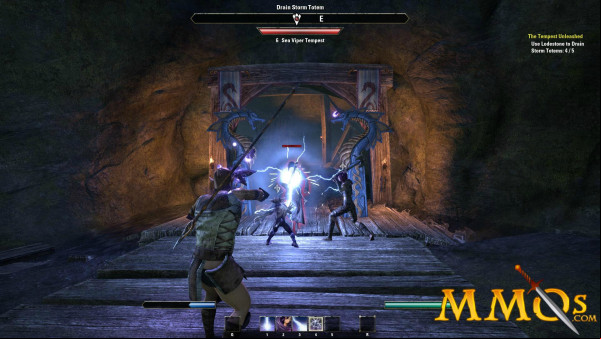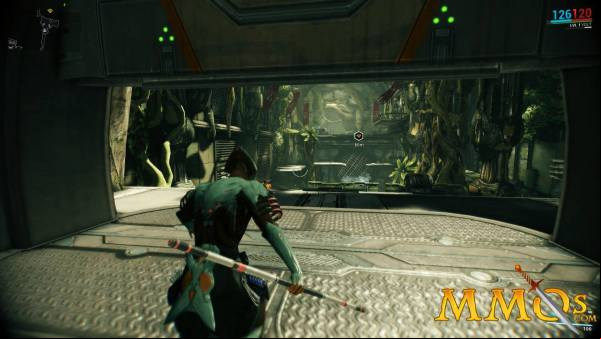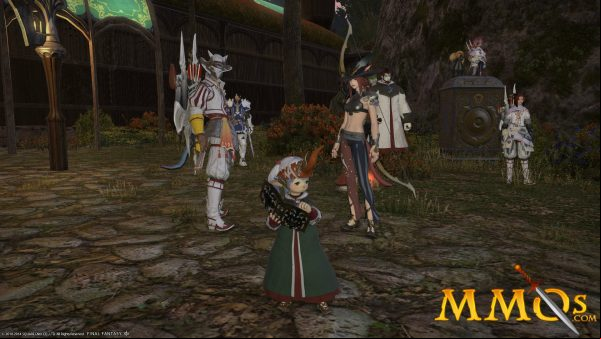Console MMOs Continue to Shake Up the Industry

The MMO genre has grown almost exclusively on PC for decades, while console players have generally been excluded. With the current generation of consoles pushing processing power beyond previous limits, and requiring always-connected broadband connections, the MMO genre has burst into the consoles world with a suite of impressive titles: games like Final Fantasy XIV have presented highly functional console ports, and new exclusives like Destiny are defining what an MMO can be when built specifically for consoles.
It can be easy to get excited about the new breed of console MMO's, and for good reason. From advanced hardware, to cohesive communities, to the ability to deliver regular content updates, consoles are making a stronger showing than ever before.
Comparing Hardware
Consoles provide a standard set of specifications for developers to work with, preventing them from truly pushing graphical boundaries within a single generation, while affording players the ability to play through an entire generation without spending a dime on hardware upgrades. At the same time, the Xbox One and PS4 feature more competitive hardware than their predecessors, allowing developers greater freedom to push the envelope than in previous generations. The Xbox One boasts 8GB of DDR3 RAM, and the PS4 sports 8GB of GDDR5, while both use an 8 core AMD processor. Both contain GPU’s competitive with entry-level performance GPU’s for gaming PC’s, such as the Radeon 7870, and both are clocked in the high range.
If the current console generation is any indication of the future, then console hardware in coming generations should continue to grow closer to the top PC builds, making hardware more of a competitive factor for consoles than a weakness. When displayed on newer HD TV’s, graphics quality on AAA console MMO’s is getting harder for the untrained eye to differentiate from PC titles on mid-level hardware, and the trend is likely to rise.
Cohesive Communities
MMO's cannot justify their existence without communities, and current console MMO’s are keeping pace with their PC counterparts. By doing away with text-based chat, console MMO's force players outside of the game to meet people for endgame group content. For example, since Destiny provides neither in-game matchmaking for raid content, nor chat channels to find a team, players must turn to online forums, clan websites, or the wide array of Destiny LFG websites to find fellow raiders. This may actually be a hidden redeeming factor of console MMO's, as it can inevitably push more players towards established clans, rather than throwaway groups found by spamming in-game chat.
When PC and console communities converge on a single server things can get tricky, which is why most cross-platform MMO developers keep the two camps on separate servers. Final Fantasy XIV serves as an example here, in which console players find themselves routinely kicked from pick-up groups by teams of PC players. As the argument goes, console players lack the ability to set up macros and hotkeys, contribute to chat during group content, or perform lateral and forward/backward movement while simultaneously performing actions, which can drag down a team’s performance in the game’s later group content. This, in turn, can jade PC players into insta-kicking any console teammate who shows up from a queue.
Content is King
A title like Destiny shows that consoles can offer an MMO experience that feels complete, even without the ability to walk out of a major city and travel by foot to distant locations. Others prove that the massive scale of PC MMO's can be replicated in full on consoles. Examples of full-scale ports include Neverwinter, The Elder Scrolls Online, and Elite: Dangerous, which provide the same suite of gameplay elements to console players as they do for PC, even if their UI’s are redesigned to be more streamlined.
Console-specific MMO's seem to tone down complex systems and UI’s in favor of an action focus, which is not necessarily an indictment. For example, travel and crafting in Destiny are greatly simplified compared to traditional MMO titles, and an auction house is nowhere to be found, but loyal players are not hindered by these things. On the contrary, many appreciate the game’s focus on immediate action over extra-curricular activities such as refining crafting materials.
Content patches and updates have been critical in MMO's from Day One, and previous generations of consoles struggled or outright failed to provide a mechanism to deliver content frequently. Current consoles have overcome this limitation, allowing console players to experience every patch and every major update the day it is released.
The Future of Console MMO’s
When all is said and done, consoles seem to be doing more good for the genre than harm, with fairly competitive hardware, innovative design, and exclusive titles expanding the player-base overall. If current trends continue, the future of console MMO’s looks bright, and promises to entertain far into the future.






